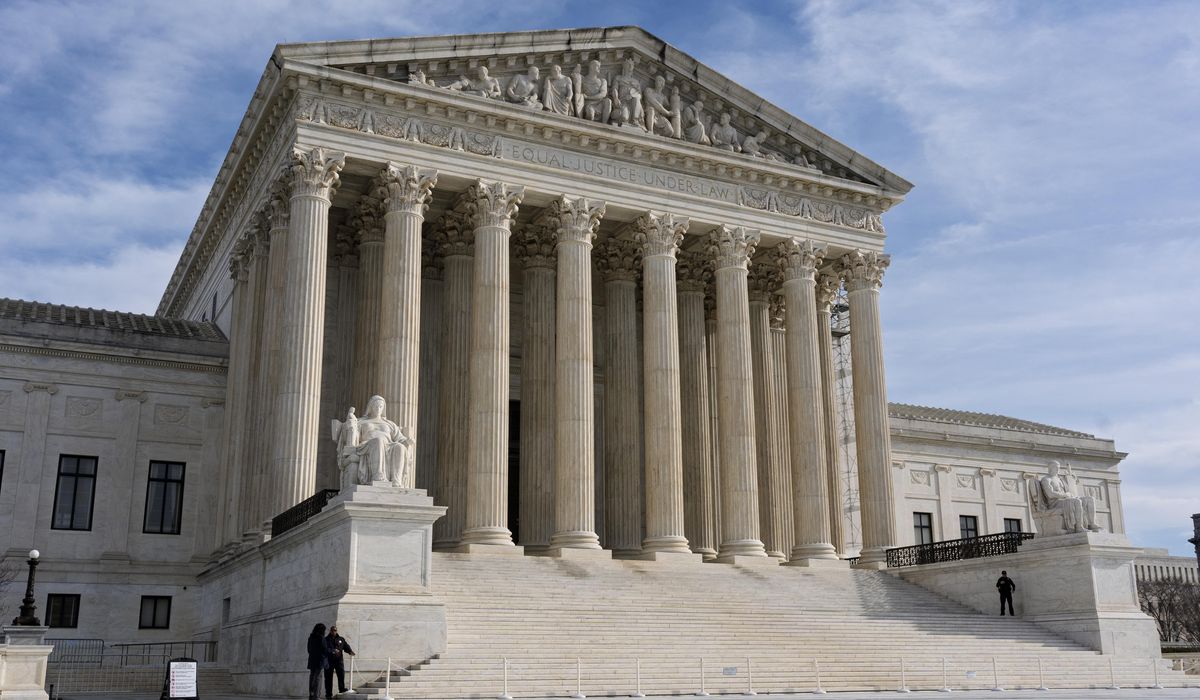


The Supreme Court on Wednesday appeared sympathetic to a Texas law that requires adult websites to verify the age of their users in an effort to protect children from accessing the mature content.
The justices considered whether a lower court, which allowed the age verification measure to take effect, applied too low of a standard of review.
Challengers from the adult film industry say that the law tramples First Amendment rights and that the lower court should have required a higher level of scrutiny before refusing to halt the requirement from taking effect.
Justices, though, acknowledged the access children have to adult material has grown exponentially with the internet and technology.
“Content filtering for all those different devices, I can say from personal experience, is hard to keep up with,” said Justice Amy Coney Barrett.
“The nature of the pornography has also changed,” said Chief Justice John G. Roberts Jr.
The clash over whether verifying a user’s age implicates First Amendment rights came to a head in Free Speech Coalition v. Paxton, which the justices considered how to best keep minors safe online.
At issue is Texas House Bill 1181, which requires online adult content providers to implement age verification for accessing their sites. When it enacted the measure in 2023, the state aimed to deter the flow of adult images and materials to youths under the age of 18. A violation of the law could cost a company more than $10,000.
The law requires consumers of adult content to enter a government-issued form of identification to prove their age; court records show that companies are not allowed to retain the information under the law.
Texas Solicitor General Aaron Nielson said it is no different than an adult being asked to show an ID to access adult venues or substances, suggesting there is no constitutional injury.
“We are not transferring identifying information,” Mr. Nielson said.
Free Speech Coalition, a trade group for the adult entertainment industry, argues that the age verification process requires users to enter too much personal information and is aimed at certain content, running afoul of the First Amendment.
“There are ways to identify age short of identifying an individual,” said Derek Shaffer, who represented the adult film industry. “You should have confidentiality.”
After a federal appeals court sided with Texas, advocates for the adult entertainment industry petitioned the high court.
Brian Fletcher, principal deputy solicitor general at the Department of Justice, urged the high court to remand the case to the lower court for it to apply a higher standard.
“Technology doesn’t just cut in one direction,” Mr. Fletcher said. “Burdens on privacy are important.”
The high court is expected to issue a decision by the end of June.
• Alex Swoyer can be reached at aswoyer@washingtontimes.com.
